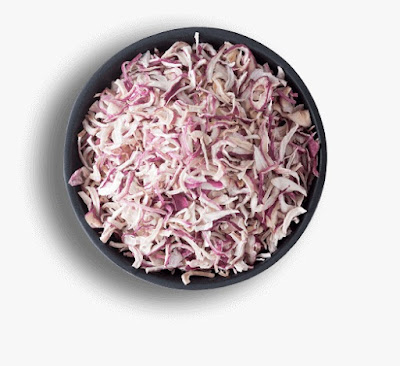Dehydrated Vegetables: A Healthy and Convenient Food Choice
Dehydrated vegetables have gained significant popularity in recent years, thanks to their numerous health benefits and convenience. They are simply fresh vegetables that have been dried to remove most of their moisture content. This process not only preserves their nutrients but also extends their shelf life significantly.
Why Choose Dehydrated Vegetables?
- Nutrient-Packed
Powerhouses: Despite the drying process, dehydrated vegetables retain
a significant amount of essential vitamins, minerals, and antioxidants.
They are an excellent source of fiber, which aids in digestion and
promotes satiety.
- Long
Shelf Life: Dehydrated vegetables can last for months, even years,
when stored properly in airtight containers. This makes them a convenient
and cost-effective option for busy individuals.
- Versatile
Culinary Applications: Dehydrated vegetables can be used in a variety
of dishes, from soups and stews to salads and stir-fries. They can be
rehydrated by soaking them in water or broth, or added directly to recipes
without rehydration.
- Lightweight
and Portable: Dehydrated vegetables are lightweight and easy to
transport, making them a great choice for camping, hiking, or traveling.
How to Incorporate Dehydrated Vegetables into Your Diet
Here are some tips to incorporate dehydrated vegetables into
your daily diet:
- Rehydrate
and Use as Fresh Vegetables: Simply soak dehydrated vegetables in
water or broth until they are soft and plump. Use them in salads,
stir-fries, or as a side dish.
- Add
to Soups and Stews: Toss dehydrated vegetables directly into soups and
stews to add flavor, texture, and nutrients.
- Create
Flavorful Snacks: Combine dehydrated vegetables with nuts, seeds, and
dried fruits for a healthy and satisfying snack.
- Make
Your Own Trail Mix: Mix dehydrated vegetables with nuts, seeds, and
dried fruits for a nutritious and portable snack.
- Sprinkle
on Salads: Add a colorful and crunchy touch to your salads by
sprinkling dehydrated vegetables on top.
Popular Dehydrated Vegetables
- Mushrooms:
A great source of B vitamins, selenium, and potassium.
- Carrots:
Packed with beta-carotene, which is converted to vitamin A in the body.
- Spinach:
A rich source of iron, calcium, and vitamins A, C, and K.
- Beets:
A good source of fiber, folate, and manganese.
- Onions:
Add flavor and antioxidants to your dishes.
By incorporating dehydrated vegetables into your diet, you
can enjoy the benefits of fresh produce year-round, while reducing food waste
and saving time.





Comments
Post a Comment